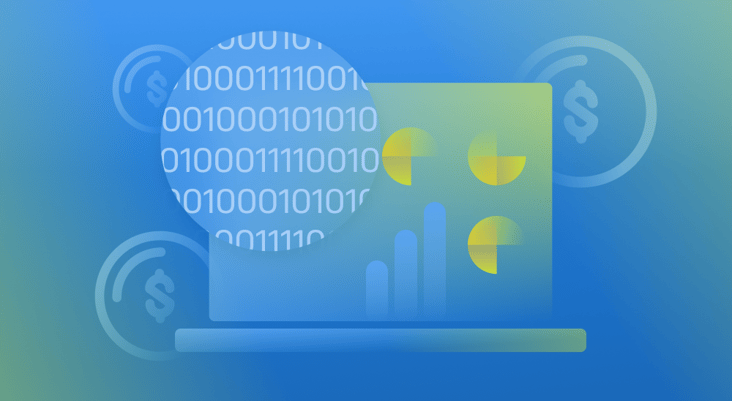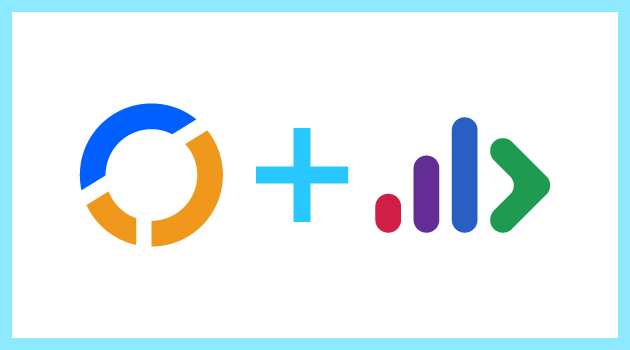
Sales Strategy: how to use Big Data in commercial processes?
The latest statistics on Big Data in business processes include an increase in global investments. For example, it has already been mapped that they have grown by about 35% in the last three years. Moreover, the amount to be moved in Brazil by 2028 will be $20.28 billion.
In other words, we are no longer talking about a trend, but a reality. The strategic use of large volumes of data is what defines the success and sustainability of businesses.
Let's discuss about this topic? Keep reading because here we will show you:
- why Big Data is closely related to your business's sales strategy;
- what are the practical advantages of exploring it;
- where to start;
- and much more!
What is a Big Data-driven sales strategy?
By definition, a sales strategy is a plan that companies design to guide and plan their commercial actions. Especially to achieve objectives such as:
- increase the number of conversions;
- end the year with X% more revenue (compared to the previous year);
- have a customer satisfaction index of Y%;
- and so forth.
Increasingly, companies with high commercial maturity—or seeking it—incorporate data analysis into this process. In the case we are addressing here, it involves exponential volumes of data, or Big Data.
This involves collecting, processing, and using large sets of information for various purposes. From identifying trends, buyer behavior patterns to obtaining actionable insights, guiding timely and informed decisions.
In this sense, a Big Data-driven sales strategy involves the use of advanced analytics. Invariably, carried out through advanced technological tools that explore data sets and provide correlations, answers, projections, among other competitive benefits.
What is Big Data?
The term Big Data refers to the analysis of a huge amount of data. These are produced globally and continuously through the extreme connectivity available today.
This range of information, when structured and interpreted, generates excellent insights for companies to improve their internal and external processes.
Internally, Big Data tools contribute to increased productivity, support decision-making, and help reduce costs.
Externally, they enhance market sizing, deep understanding of target audiences, sales projections, revenue, and revenue forecasting, among other fronts.
The 5 Vs of Big Data
In general, Big Data is structured on 5 Vs:
- Volume: It is related to the amount of data produced in real-time;
- Variety: It is the immense variety of collected data such as videos, images, texts, sounds, among other formats;
- Velocity: It is the increasing speed of data production;
- Veracity: It is the ability to filter true information from thousands of sources to ensure reliable results;
- Value: The collected data must generate value. Thus, companies can invest time, resources, and human capital in their analisis.
What are the general benefits of Big Data for companies?
As we have seen, Big Data offers a range of data for companies to find business opportunities. Now, check out a breakdown of its main advantages.
Developing products based on public desires
With Big Data, it is possible to test public acceptance even before the official launch of a product or service.
Social networks provide abundant research material on the desires of your audience, which can generate insights for improving current items and even launches.
This fosters a closer relationship between the customer and the company, as this sales strategy places the consumer as a participant in the production process.
As a result, the business ensures a greater potential for market penetration and participation.
Identifying trends
Well-done data mining allows the identification of market trends, with predictive analyses.
A company that can map insights quickly and predict movements can make faster decisions and stay ahead of the competition.
In increasingly competitive and globalized markets, agility is always the best way to generate a differential in sales strategies.
Big Data and its tools offer abundant material for this task.
Creating ads aligned with the target's interest
One of the great possibilities that digital marketing offers is segmentation and data capture in exchange for highly useful materials for the public.
This information serves to improve the company's knowledge about its audience, giving them everything necessary to create ads with great conversion potential that directly meet the interests of the target.
What are the influences of Big Data on commercial processes?
There is a range of possibilities for Big Data in the commercial processes of organizations in all market segments. Here are some of them.
Improvements in Marketing
One of the first departments where the positive impacts of Big Data can be visualized is Marketing.
Using the right tools for predictive analytics and other forms of data mining, it is not difficult to achieve greater effectiveness with marketing actions, thus optimizing results, saving time, and reducing costs.
Moreover, by mapping consumer behavior based on demographic and behavioral patterns, this area can determine how the public will receive its initiatives.
Prevention and crisis management
With Big Data, it is possible to detect potential crises before they become a "snowball," acting at the root of the problem. For example, by analyzing patterns in customer interactions and opinion leaders on social networks and digital channels of the company.
If it is not possible to act at the initial stage, professionals have a basis to create a crisis management plan in advance.
Adjustment of the sales funnel
The sales funnel is a "concept/tool" used by Sales, Marketing, and Market Intelligence areas to direct target audiences through a journey divided into stages. Starting at the top, where a large volume of leads enters, and culminating at the bottom, where conversions occur—hence the visual metaphor of a funnel.
With it well mapped, it is possible to lead customers and prospects through each stage, according to their interest in the product or service. The sales funnel stages are:
- Top: here, the goal is to attract as many consumers as possible by creating relevant content that solves the personas' problems;
- Middle: at this stage, we enter the consideration phase, where the user begins to realize they have a problem and your company emerges as one of the contenders to solve that problem. Your focus should be on converting this visitor into a lead;
- Bottom: at this stage, the visitor has already turned into a lead and is inclined to use your product or service. The focus here is on conversion, decision-making.
All this process will be better implemented and accelerated with a greater market knowledge and campaign segmentation.
The more targeted the material, the greater the chances of reaching visitors who have the potential to become leads, and this will be more effective with data mining.
And that's where Big Data comes in. With it well worked, the professionals involved can cross internal and external databases to act contextually, with precision, and reliability.
How to start using Big Data in your company's commercial processes?
The effective use of Big Data in commercial processes involves a well-planned strategy, the right tools, and superior analytical skills of the professionals involved.
Check out four basic steps for this implementation.
-
Invest in advanced analytical tools
- Explore analytical tools that allow processing large volumes of data and generating actionable insights. Especially those equipped with machine learning algorithms and predictive analytics, among other capabilities.
Among the most recommended solutions are Sales Intelligence platforms. They, integrated with CRMs and other applications, enable:
- Sizing the market;
- Discovering and deeply studying the ideal customer profile;
- Making sales projections and revenue forecasts;
- Measuring the operational and strategic performance of the company, as well as its results;
- Among other possibilities.
-
Integrate Marketing and Sales
- The use of Big Data in commercial processes requires Marketing and Sales to work side by side. This is because these two teams follow the entire customer buying journey and, united, can act more assertively.
In this sense, it is worth establishing planning, service level agreements, and collaboration. Always aiming for the exchange of discoveries, joint design of approaches, among other fronts.
-
Enhance the data intelligence of the teams
- With the right tools and teams working in synergy, it is important to ensure that the analytical capabilities of the professionals are up to the expected level.
In other words, training should be provided so that teams can explore data and analyses effectively. Especially focusing on developing skills to interpret data insights and apply them to approaches such as:
- lead capture, qualification, and nurturing;
- prospecting and negotiation;
- results measurement;
- agile and efficient decision-making;
- among other fronts.
-
Guide actions and monitor results with metrics and KPIs
- Finally, it is always important to remember that it is not enough to have access to data and know how to interpret it. It is also necessary to use it to guide projects and initiatives, as well as to measure results accurately.
For this, it is fundamental to define metrics and key performance indicators (KPIs) that make sense for the business. Including customer acquisition cost, customer lifetime value, conversion rates, among other parameters.
This way, it will be possible to regularly monitor and analyze the effectiveness of sales strategies. And whenever necessary, reconfigure the route in a timely manner.
The strategic use of Big Data in commercial processes strengthens the sales strategy
Big Data can be applied in all departments of a company, offering a broader view of the business. This is quite tangible in commercial processes, which typically involve Marketing and Sales.
When well explored, it strengthens the sales strategy, as it makes it data-driven from end to end.
Logically, it is necessary to invest in technology and qualified personnel for this initiative to be successful.
How is data usage in your company's commercial processes?
About Cortex
Cortex is the number 1 company in intelligence solutions for growth. If you want to know how to prospect customers with data intelligence, get to know the B2B Sales Intelligence platform.
Or, if you're in a hurry, don't waste time: schedule a conversation with the Cortex team of experts and find out how to save hundreds of hours for intelligence teams.





